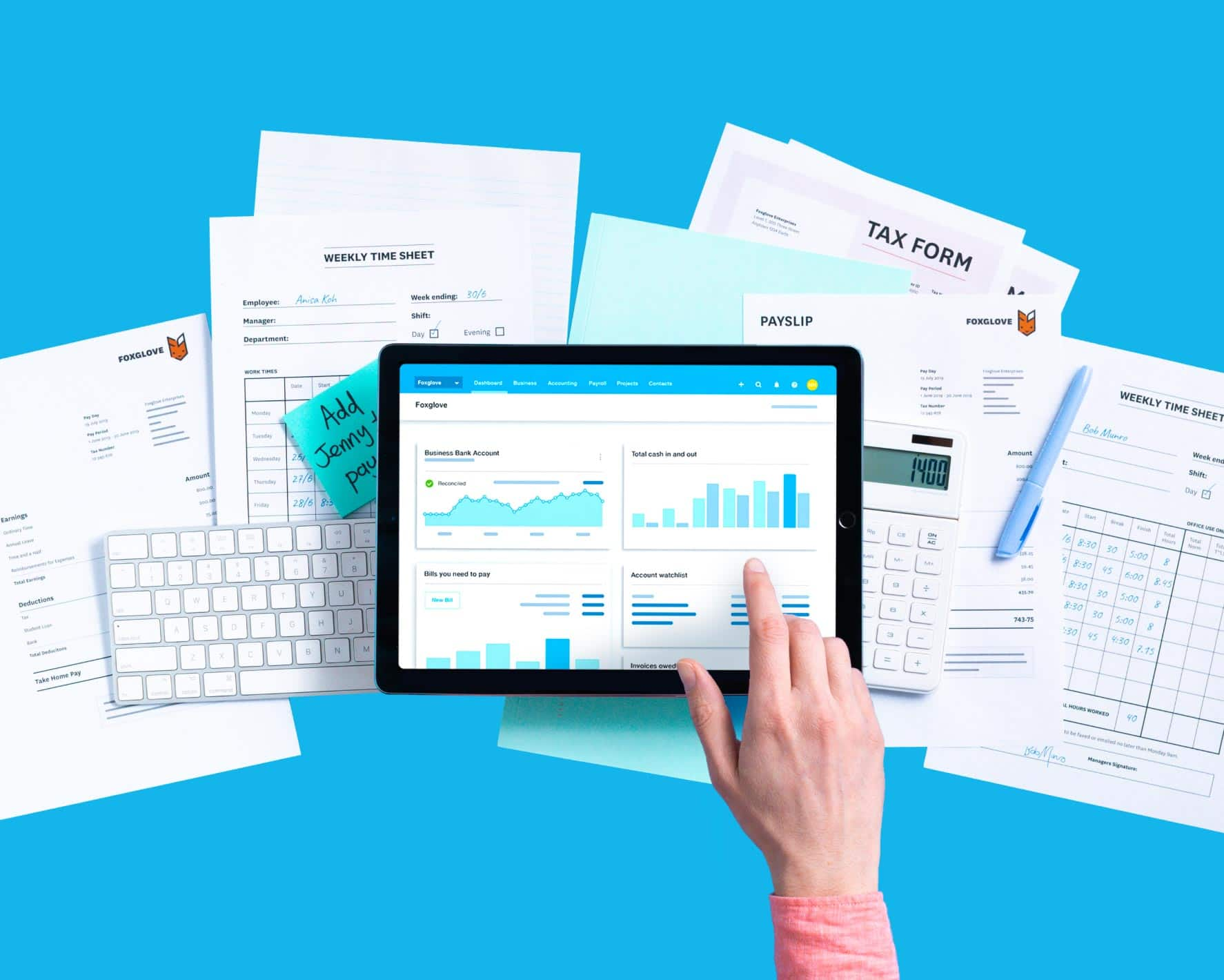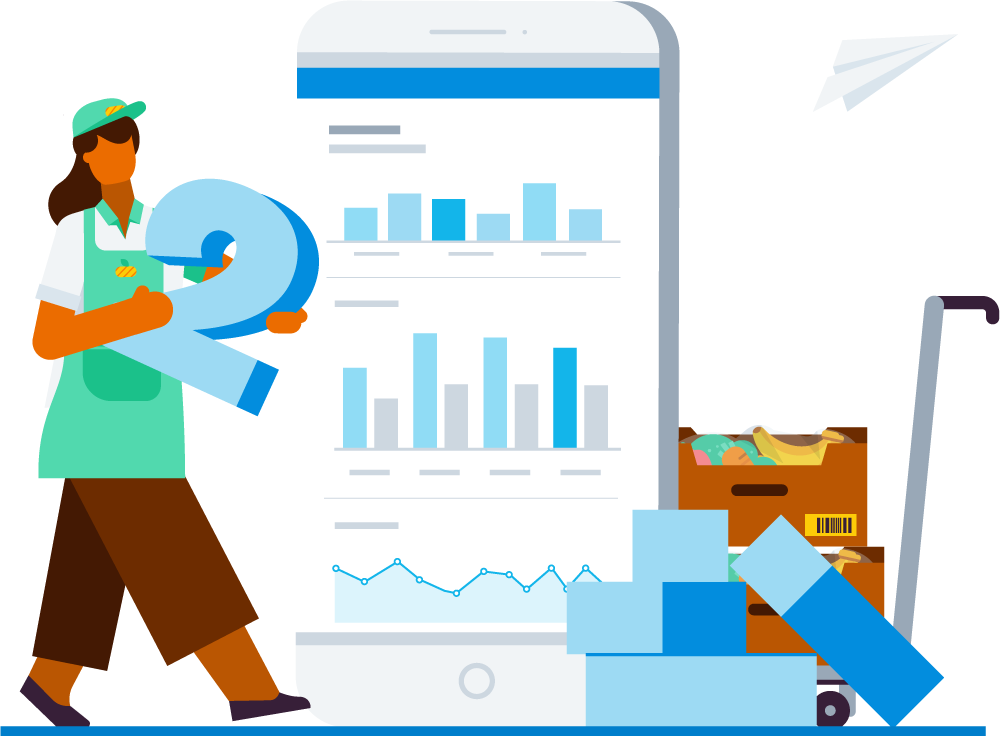Sail through your financial year end with Xero
When preparing for the end of financial year (EOFY), Xero makes life easy for your small business. Get important dates and practical info to follow SARS rules with confidence. And see how Xero accounting software helps you keep full, accurate records for your financial reporting and compliance.

End of financial year explained
South Africa’s financial year ends on 28 February. As a small business owner, you must close your books on this date. Doing so allows you to generate a financial statement and calculate how much tax you owe SARS. It also gives you the chance to reflect on your business’s financial performance.
What is end of financial year in South Africa?
The financial year is a 12-month period for tax and accounting purposes. At the end, small business owners must reconcile financial records.
When does the financial year start and end?
The South African financial year – also known as the fiscal year – starts on 1 March and ends on 28 February (or 29 February if leap year.
Here are the SARS tax season datesHow do I complete a tax return?
Once you have your tax reference number from the CIPC, you need to use eFiling to report your finances to SARS electronically.
Register with the Companies and Intellectual Property CommissionWhat financial records do I need to keep?
You must keep all relevant financial records, including bank statements, expense receipts, loans, and anything else that documents expenses.

How Xero can support your EOFY
Find EOFY a headache? The best way to prepare is to make sound recordkeeping part of your everyday routine. Xero gives you a streamlined digital system for calculating, storing, and organising your financial info. You can then easily turn this into annual statements and reports. Simple!
Automatic calculations
Sit back as Xero automatically works out your numbers – like your total expenses and income – free from errors
Xero’s bank reconciliation tool
Regularly reconcile your bank transactions so you know what cash is available, including for your tax bill
All your records in the cloud
Store your financial info securely in the cloud, ready for any requests by SARS or your investors
Financial reports and insights
Run a range of customised reports to see how your business has performed and make a plan for next year

More accounting resources from Xero
Here are some guides and resources to help you grow a healthy business. When EOFY rolls around, you’ll be set up for success!
Explore Xero’s accounting resources
Choosing a different financial year end
For most businesses, the financial year end in South Africa is February. But you can choose a different period if it suits you. For example, if February is your busiest season for sales, you might prefer to close your books during the summer. Bear in mind:
- You must apply to the CIPC to change your financial year start date
- Things to consider when choosing a year end include your busy periods, funding cycles, and cash flow
- All businesses in South Africa must prepare for their EOFY so they can submit a financial statement and pay tax

Run a smooth payroll for your EOFY admin
If you employ staff, having reliable pay records makes EOFY that much simpler. Over the course of the year, Xero helps you pay your staff the right amounts each cycle. Xero software then stores all your payroll info so that, come February, this is ready in an easy digital format.
- Store key pay run details including salary and wage payments, and pension contributions
- Run reports with data visualisations to make sense of your data
- Prepare for SARS submissions, including your Employer Annual Reconciliation Declaration

FAQs on end of financial year in South Africa
You must keep all relevant financial records from the 12-month period in their original form. These include bank statements, invoices, expense receipts, and payroll records. Legally, you need to hold onto these records for 5 years in case of inspection by SARS.
Here’s more recordkeeping info from SARSYou must keep all relevant financial records from the 12-month period in their original form. These include bank statements, invoices, expense receipts, and payroll records. Legally, you need to hold onto these records for 5 years in case of inspection by SARS.
Here’s more recordkeeping info from SARSXero simplifies your year end reconciliation process for pay as you earn (PAYE), the unemployment insurance fund (UIF), and the skills development levy (SDL). This includes automating the generation of employee tax certificates (IRP5s/IT3(a)s) and annual reconciliation declarations (EMP501s) for easy submission to SARS.
Register for employees’ tax on this SARS pageXero simplifies your year end reconciliation process for pay as you earn (PAYE), the unemployment insurance fund (UIF), and the skills development levy (SDL). This includes automating the generation of employee tax certificates (IRP5s/IT3(a)s) and annual reconciliation declarations (EMP501s) for easy submission to SARS.
Register for employees’ tax on this SARS pageProvisional tax is a way of paying your income tax bill in advance. Instead of paying one large amount at your assessment, you can pay at least two smaller amounts in the year leading up to this. These amounts are based on your estimated taxable income. You have the option of paying a third amount after the end of the tax year but before the assessment by SARS. When you’re then assessed, these provisional payments will be offset against the liability for normal tax.
Check this SARS for more details on provisional taxProvisional tax is a way of paying your income tax bill in advance. Instead of paying one large amount at your assessment, you can pay at least two smaller amounts in the year leading up to this. These amounts are based on your estimated taxable income. You have the option of paying a third amount after the end of the tax year but before the assessment by SARS. When you’re then assessed, these provisional payments will be offset against the liability for normal tax.
Check this SARS for more details on provisional taxThroughout the financial year, hold onto your VAT invoices and bills. (You may be asked to show these to SARS up to 5 years later.) For financial year end, double-check all your VAT amounts are reconciled and accurate, and your input and output tax claims are correct. Xero software can simplify this process with automatic calculations and the auto-population of your returns for e-filing.
How Xero can help with your VAT returnsThroughout the financial year, hold onto your VAT invoices and bills. (You may be asked to show these to SARS up to 5 years later.) For financial year end, double-check all your VAT amounts are reconciled and accurate, and your input and output tax claims are correct. Xero software can simplify this process with automatic calculations and the auto-population of your returns for e-filing.
How Xero can help with your VAT returnsIt’s relatively easy to set up a qualifying pension scheme in Xero software. You can then process pension payments in each pay run and save yourself from manual data entry. If your employees are eligible, you can set up auto enrolment in your workplace.
Here’s more info about setting up workplace pensionsIt’s relatively easy to set up a qualifying pension scheme in Xero software. You can then process pension payments in each pay run and save yourself from manual data entry. If your employees are eligible, you can set up auto enrolment in your workplace.
Here’s more info about setting up workplace pensions
Start using Xero for free
Access Xero features for 30 days, then decide which plan best suits your business.
Run your business with Xero
Xero has the features you need to ace your end of financial year.
Easy invoicing
Send online invoices when the job's done. Set automatic payment reminders to spend less time chasing payments.
Simple bank reconciliation
Keep track of your cash flow with daily bank reconciliation. Save time and stay up to date on your business.
Instant data capture
Automate tasks like entering bills and receipts. Just take a photo or scan documents into Xero via Hubdoc.